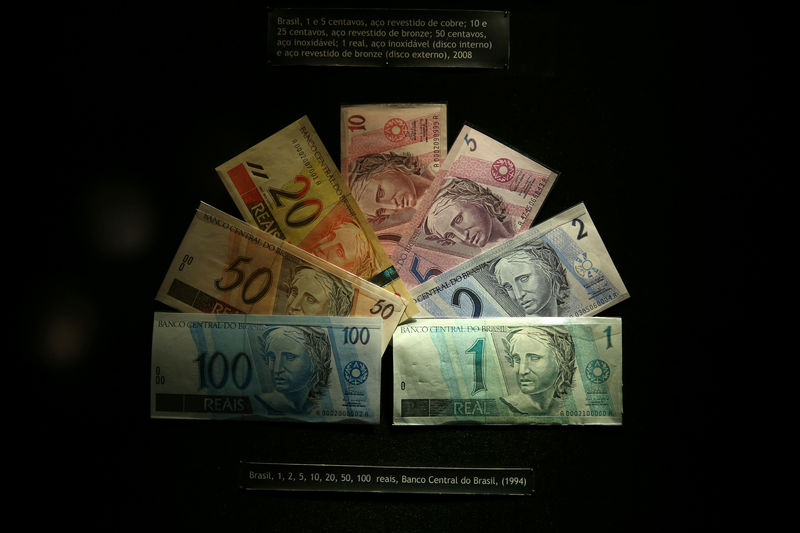By Jamie McGeever
BRASILIA (Reuters) - Brazil's balance of payments position improved in February, figures showed on Friday, as the current account deficit as a share of the economy shrank to its smallest in 13 years and billions of dollars of corporate and financial investment poured into the country.
The current account deficit of 0.48% of gross domestic product in the 12 months to February was down from 0.64% the previous month and the smallest since February 2008, central bank figures showed.
Graphic: Brazil current account - https://fingfx.thomsonreuters.com/gfx/mkt/azgvodekrpd/CURRACC.png
Foreign direct investment (FDI) totaled $9 billion, the highest monthly inflow since August 2019, while investors plowed $3.6 bln into Brazilian stocks and bonds, the ninth consecutive month of net portfolio inflows.
Graphic: Brazil FDI flows - https://fingfx.thomsonreuters.com/gfx/mkt/xegvbgwaqpq/FDI.png
The current account deficit in the month was $2.3 bln, in line with the median forecast of a $2.4 bln shortfall in a Reuters poll of economists. That was down from a $4.7 bln deficit a year ago.
The figures for February come a day after the central bank revised its 2021 current account forecast to a $2 bln surplus from a $19 bln deficit. That would be Brazil's first annual surplus since recording a slender $408 million surplus in 2007.
The $9 bln FDI inflow in February was more than the $6.1 bln forecast in a Reuters poll, and sharply up from $2.6 bln the same month last year, the central bank said.
Based on partial data so far for March, the central bank expects FDI totaling $7 bln this month and a current account deficit of $1.3 bln. On Thursday the central bank maintained its expectations for $60 billion FDI inflows this year.
Net portfolio investments into Brazil totaled $3.6 bln in February, the ninth consecutive month of inflows, the central bank said. Of that, $822 mln went into stocks and $2.8 bln into debt securities.
